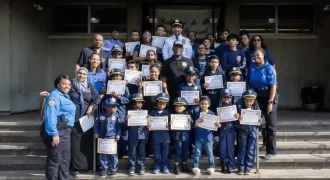Our globalized world is becoming more complex and multifaceted in social issues, which impact people and communities significantly. Inequality and discrimination can be avoided and overcome, as well as environmental degradation and the public health crisis, the issues at hand demand thoughtful maneuvering and active response. Responsibility in avoiding social issues can be a potent driving force of change, giving individuals and groups the strength to make a significant move. This blog reflects on the importance of awareness in solving social problems and gives the approaches towards building knowledge and stimulating favorable change.
The Importance of Awareness in Social Issues
The process of knowledge about the intricacies of social matters starts with awareness. It entails the understanding of the existence of these problems, the cause of the problem, and the effect on people and society. The following are some of the reasons as to why awareness is important:
1. Empowerment Through Knowledge
Knowledge is empowering. When people get educated about the problems in the society, they are able to make informed judgments and act. By increasing awareness, people are able to appreciate the finer details of such problems as poverty, racism, and climate change, and thus, have an informed discussion and empower themselves to promote solutions..
2. Promoting Empathy and Understanding
Awareness fosters empathy. Through the living of other people, people can have a better understanding of the struggles that are experienced by the marginalized groups. This compassion may result in unity and cooperation to deal with social injustices..
3. Driving Collective Action
Communities can be mobilized through awareness. People tend to be attracted to each other when they are aware of a common interest and, therefore, they can unite to promote change. As a unit, a group of people may be more effective than a single individual, which multiplies the voices and enhances the chances of a significant outcome.
4. Influencing Public Policy
The citizens who are informed can affect the government policy. Understanding social issues may motivate people to participate in advocacy to have policies that bring equity, justice, and sustainability. When communities are informed on their rights and systems that influence them, they will be able to hold the decision-makers accountable, thereby advancing social equity together.
Strategies for Navigating Social Issues
Navigating social issues with awareness requires intentional efforts and strategic approaches. Here are some effective strategies to cultivate awareness and drive change:
1. Education and Information Sharing
- Workshops and Seminars: Conduct educational events that target particular social problems. Bring professionals to talk, present facts and discuss. As an illustration, racial justice workshops may inform the participants on the issue of systemic racism and its consequences.
- Online Resources: Use social media and websites to post articles, videos, and infographics to draw attention to social problems. Social networks such as Instagram and Twitter could be a potent instrument in the notification of younger populations.
2. Storytelling and Personal Narratives
- Share Personal Stories: Ask people to share their experience with social problems. Emotional appeal can be stronger than statistics as personal stories can be used to forge emotional links and inspire change.
- Media Campaigns: Initiate campaigns that feature stories of various people in the community. The real-life experience can be demonstrated through documentaries, podcasts and social media series, which can bring empathy and understanding.
3. Engaging Youth and Future Leaders
- Youth Programs: Establish youth programs that discuss social issues with the young people. Youth activism platforms can be established by schools and other community organizations, and educate them on advocacy and civic participation.
- Mentorship Opportunities: Pair young leaders with professionals. Mentorship may give direction, encouragement, and support as they go about social problems and strive to make changes.
4. Collaborative Partnerships
- Cross-Sector Collaboration:Collaborate with other local organizations and businesses and government agencies to tackle social problems together. Partnerships can also utilize resources and knowledge with greater effect.
- Community Forums: Community forums are used to hold meetings of various stakeholders discussing urgent issues in the society. Such meetings may establish communication, come up with ideas, and create change coalitions.
5. Advocacy and Activism
- Participate in Campaigns: Join or sponsor advocacy campaigns on social issues that are of concern to you. It can be climate change, education reform, social justice, or any other issue, and being part of the campaigns can make your voice and influence felt.
- Contact Decision-Makers: Fostering the idea of community members communicating with their local representatives when it comes to social problems. The pressure of change can be done through writing letters, calling phone numbers and through town halls.
Case Study: The Role of Awareness in Climate Action
Climate change is one of the burning social problems of the present day. Consciousness has been one of the drivers towards communal action in this regard. The climate movement among the youth in the world, led by some celebrities such as Greta Thunberg, has resulted in the mobilization of millions of young people across the world.
Key Strategies in the Climate Movement:
- Education: Through school strikes and informative campaigns, young activists have educated their peers and communities about the science and urgency of climate change.
- Storytelling: Activists bring personal narratives of the impacts that climate change has had on their lives which makes them feel a sense of urgency and a call to action.
- Collective Action: The movement has been able to organize mass protests that draw people across the board to promote policy change and climate justice.
As a result of increased awareness, many governments and organizations are now prioritizing climate action, demonstrating the power of collective engagement.
Conclusion
Social awareness is crucial in negotiating social issues in a manner that will bring about meaningful change. Through appreciation, compassion and exercising solidarity, individuals and communities have a chance to cope with the multiplex challenges of our society.
It is awareness, which is a mighty trigger of empowerment, engagement, and advocacy. As we strive to manoeuvre our way through social issues, we should make it a point to create awareness within us and ourselves so that we are aware, engaged and prepared to act accordingly. We can also establish a future together that is representative of our values of justice, equity and sustainability.
FAQS
- What is the way people can be useful to be involved in social problems in their communities?
People may participate by self-educating themselves on local concerns, joining in local dialogue, volunteering in local organizations and lobbying policies. Their influence can also be improved by establishing relationships with other people with similar objectives.
- How effective is social media in creating awareness of a social issue?
Social media is an influential tool of awareness, increasing information, personal experience and events organization. It enables people to communicate to more masses, rally others, and build conversations around key social topics.









